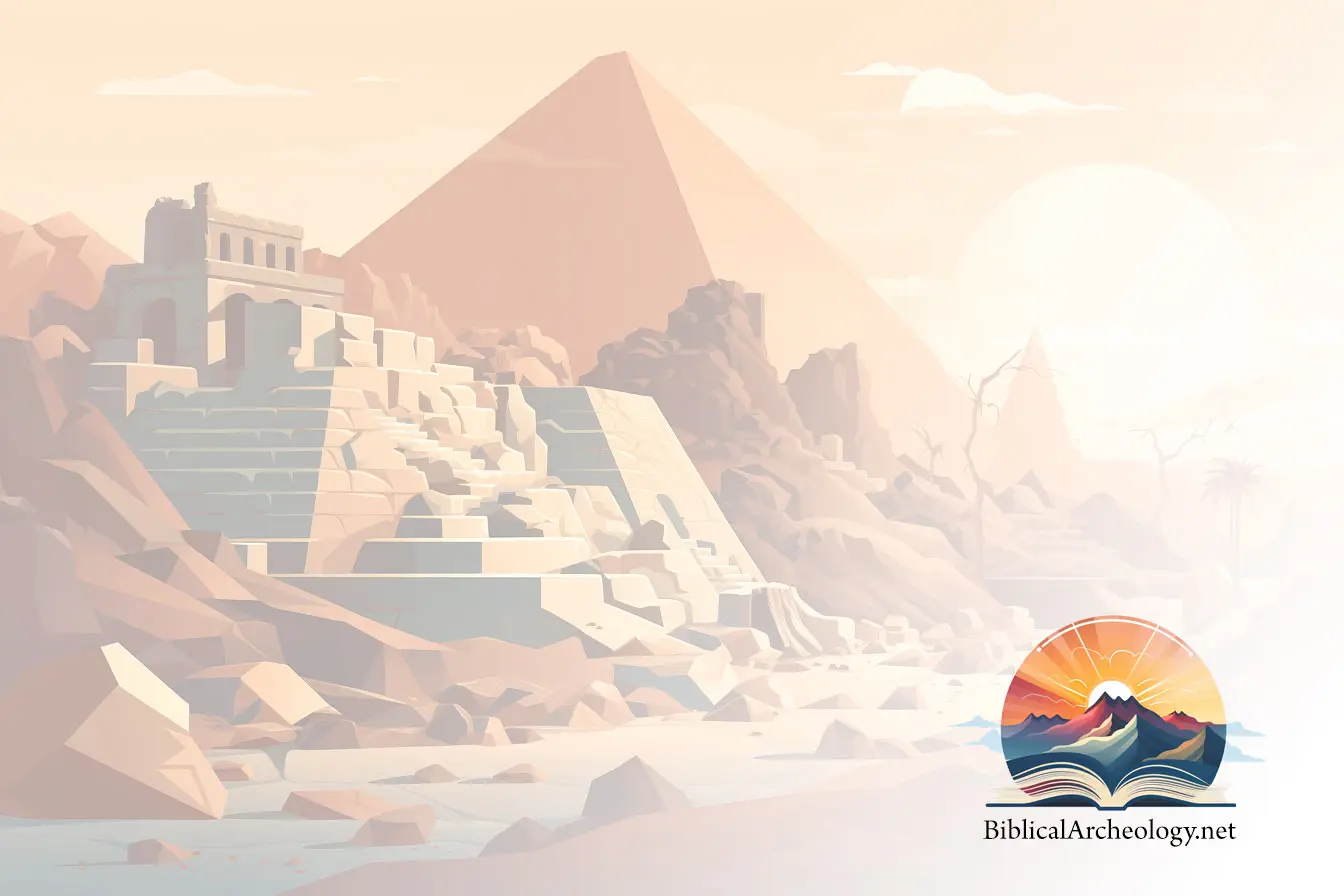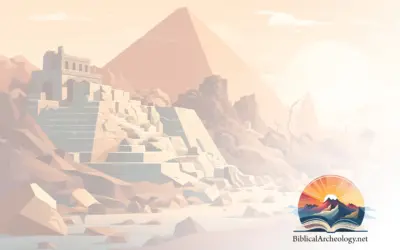The Latest Archeology News Extracts From The World Of Research Via The Web
David Noel Freedman (May 22 1922 – 8 April 2008), son of Romanian and Russian immigrants, was a biblical scholar, author, editor, archaeologist and an ordained Presbyterian minister (Th.B., Princeton Theological Seminary, 1944). After earning a doctorate in Semitic Languages and Literature at the Johns Hopkins University in 1948, Freedman held a series of professorial and administrative positions at various theological institutions and universities. 1
As the general editor of several distinguished series, including the Anchor Bible Series (1956-2008), Eerdmans Critical Commentaries (2000-2008), and The Bible in Its World (2000-2008), and as the editor and author of numerous other award-winning volumes, including the Eerdmans Dictionary of the Bible (2000), Freedman has produced over three hundred and thirty scholarly books. Recent seminal works as an author include ?The Unity of the Hebrew Bible? Freedman and his colleagues brought the world?s oldest complete Hebrew Bible to synagogues, churches, libraries and individuals around the world for the first time in history. 1
David Noel Freedman has been General Editor and a contributing coauthor of the Anchor Bible series since its inception in 1956. He is a professor in Hebrew Bible at the University of California, San Diego, and lives in La Jolla, California. 7
Freedman was born Noel Freedman on May 12, 1922, in New York city, to Beatrice and David Freedman. He deeply admired his immigrant father, a successful playwright and shtik writer for the likes of Eddie Cantor and Buster Keaton. The over-worked Freedman senior died in 1936 at age 38, and his son adopted a new first name in his honor. In his 70s and 80s, David Noel Freedman tried to bring back his father?s memory in another way, reissuing some of his works in print and arranging for a staging of his father?s first hit, Mendel, Inc. 17
Noel was the workaholic’s workaholic; into his 60s and 70s, seventy-hour work-weeks were the norm. At any rate, he thrived working at a pace that would have killed an ordinary person, even though cataracts severely limited his vision. Noel claimed to take the most pride in the books he wrote or midwifed. But, in the end, what kept him going, literally, was teaching. Up until his last week, he participated in a graduate seminar via the Internet from his son�s home in Petaluma. Noel held an indistinguishable belief in the public appetite for scholarship about the Bible. David Noel Freedman was admired and beloved by his students, his colleagues, and a far wider audience that knew him only from lectures or from reading. In his day, he served as the �nerve center� of American biblical scholarship. 47
The heart-broken Noel watched three weeks later as every stick of furniture his family owned was auctioned off and they returned to the poverty from whence it came. Yet nothing has broken Noel’s heart more than to see his father’s name forgotten. Once David Freedman had been the king of the comedy writers. Today, hardly anyone knows his name and his plays are virtually forgotten. 15
Freedman held a series of professorial and administrative positions at various theological seminaries (Western Theological Seminary, Pittsburgh; Pittsburgh Theological Seminary; San Francisco Theological Seminary; Graduate Theological Union), before settling into long, overlapping tenures at the University of Michigan, Ann Arbor (1971-92) and UCSD (1986-2008). His alumni hold teaching positions in dozens of universities, colleges and seminaries around the nation, not to mention the hundreds of clergy that passed under his tutelage. 17
During a career of 60 years, Freedman wrote, co-authored or edited 470 books and articles on the Hebrew Bible, the New Testament, the Dead Sea Scrolls, and archaeology. Some of these proved controversial, but Freedman?s attitude toward the work of others was, ?Let a thousand flowers bloom!? He was the most uncensorious of men, and his unpretentious demeanor earned him the love of hundreds of students, colleagues and readers. Freedman was a tireless spokesman for the beauty, interest and relevancy of the Bible and biblical studies. His work affected a variety of cultural communities, with fans including Jews and Christians of all stripes, plus numerous secularists. 17
It is too soon to identify Freedman?s personal contribution to biblical studies. His interests were so wide-ranging, and so unique, that they seem to have stood apart from their time. But Freedman?s other legacy is already crystal-clear. There never was such an entrepreneur-facilitator-collaborator-disseminator of biblical scholarship. His own formidable intellect and inordinate capacity for work, combined with a rare affability, qualified Freedman to lead a variety of enterprises?as archaeological director (Ashdod), as director of the Albright Institute of Archaeological Research (1969-70, 1976-77), as journal editor (Journal of Biblical Literature [1955-59], Bulletin of the American Schools of Oriental Research [1974-78], Biblical Archaeologist [1976-82]), and book editor. In the last capacity, he oversaw the publication of hundreds of popular and technical works, especially in the Anchor Bible Series, now at abound 120 volumes. 17
Freedman never retired, having fought years earlier for the abolition of mandatory retirement at UC. His life was his work and his work his life. Until the week of his death, he was engaged in editing manuscripts and teaching UCSD graduate students via webcam. At the close of what proved to be his final session, he proposed to use the Internet, a new discovery to him, to bring 10,000 viewers into his classroom! 17
“David Noel Freedman was a scholar of monumental proportion, but the three-pronged Anchor Bible project is his main legacy,” said Astrid Beck, an associate of Freedman on the project. “He knew the Bible inside out, and he was an original thinker.” 9
Born in Botosani, Romania, David immigrated to the United States as an infant. He first became a short story writer. Yet, after marrying and starting a family in his early 20s, he discovered the flaw in this career choice. His father was active in the Jewish community and knew everyone. 15
Retirement was not in his rather extensive vocabulary. The week before he died, Propp and Dr. Freedman were team teaching a Hebrew Bible seminar, with Dr. Freedman broadcasting via Web cam from his son’s home and Propp in the classroom with the students. At the end of the session, Dr. Freedman joked about expanding the class to 10,000 viewers – and charging them, Propp said. 19
Cantor would promise payment but not always come through. So David, who had a staff and gambling habit to support, expanded his client list, writing Baby Snooks sketches for Fanny Brice and six different radio shows. He wrote the Ziegfield Follies of 1936 the year he died. Noel attended opening night. “It was a special treat because the star of the show was Gypsy Rose Lee,” he remembers. 15
- References
- en.wikipedia.org
- philologos.org
- yalepress.typepad.com
- www.sdjewishjournal.com
- www.parentsorensen.com
- www.latimes.com
- www.signonsandiego.com
These Extracts are offered as important pieces of information, gleaned from the web. References are given at the end of each extract for further research by the reader. Web URLs are given at the end to facilitate independent investigation. Use the Archeology Extract mainly as a pointer to research


